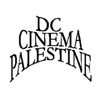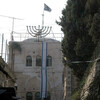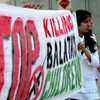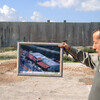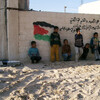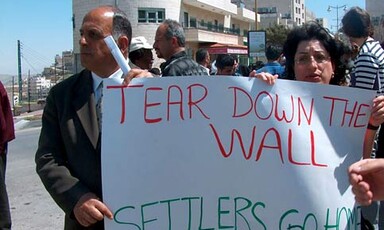
Yom al-Ard in Bethlehem
Bethlehem 31 March 2005
For the past few weeks, Israeli machinery and bulldozers have been working at the northern entrance of Bethlehem city to construct the Segregation Wall. The path of the wall is almost complete in the area, confiscating Palestinian land and olive groves, and segregating Palestinian houses in the vicinity. Yesterday (March 30), the residents of Bethlehem city went out to peacefully protest against the Israeli policies and the theft of their land for the on-going construction of the Segregation Wall. The demonstration was part of a national day of action to commemorate Yom Al-Ard (“Land Day”) in Palestine, commemorating the killing of six Palestinians by Israeli police in 1976 at a protest against land confiscations in the Galilee. Read more about Yom al-Ard in Bethlehem
